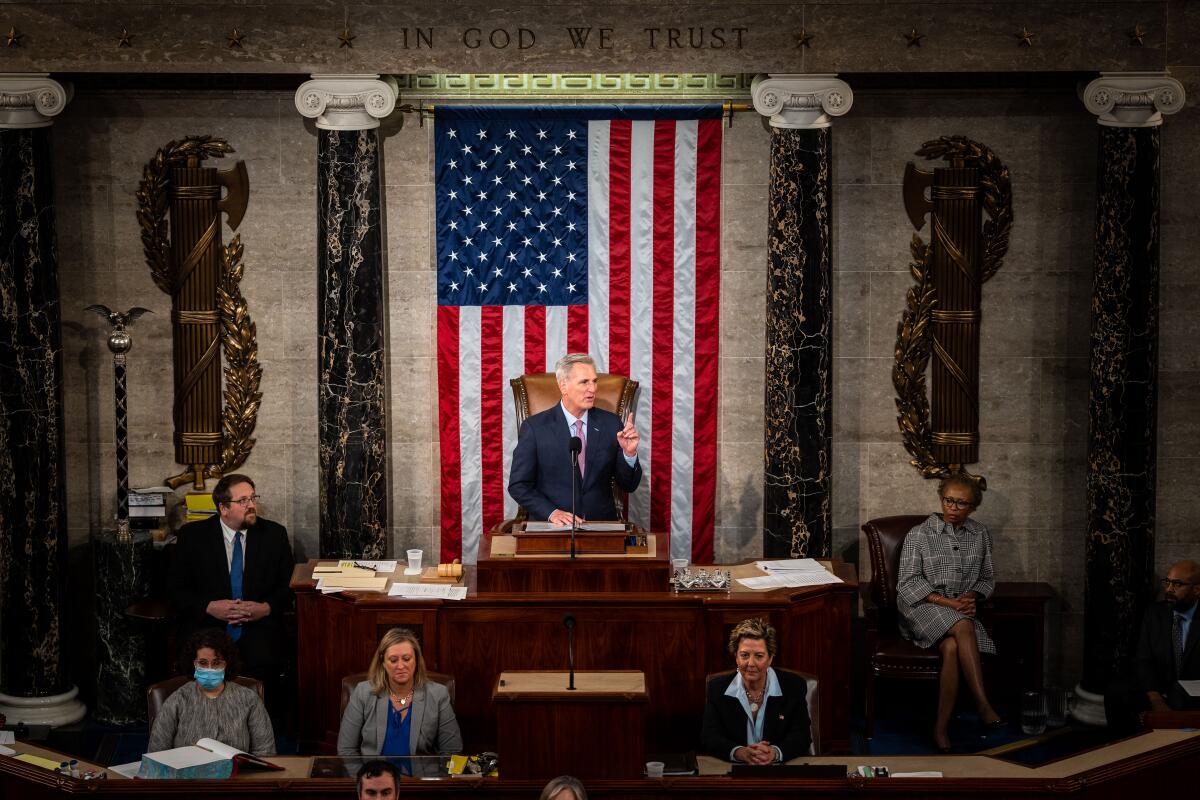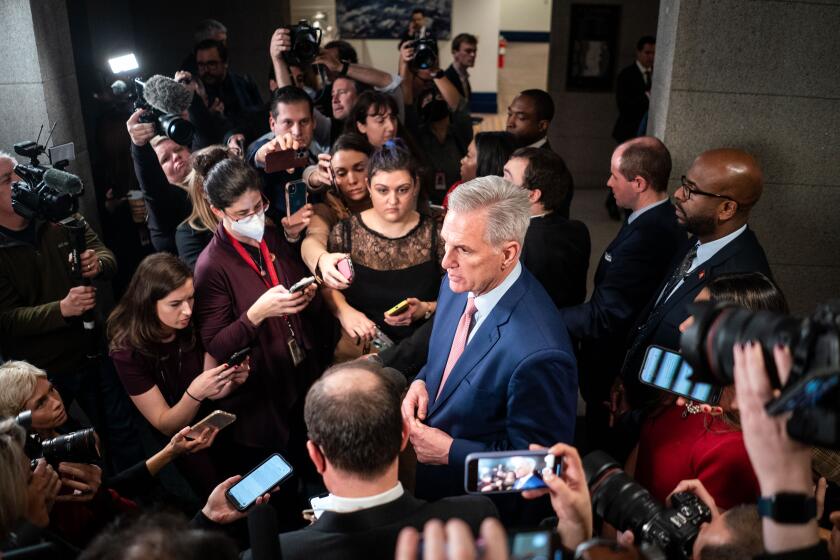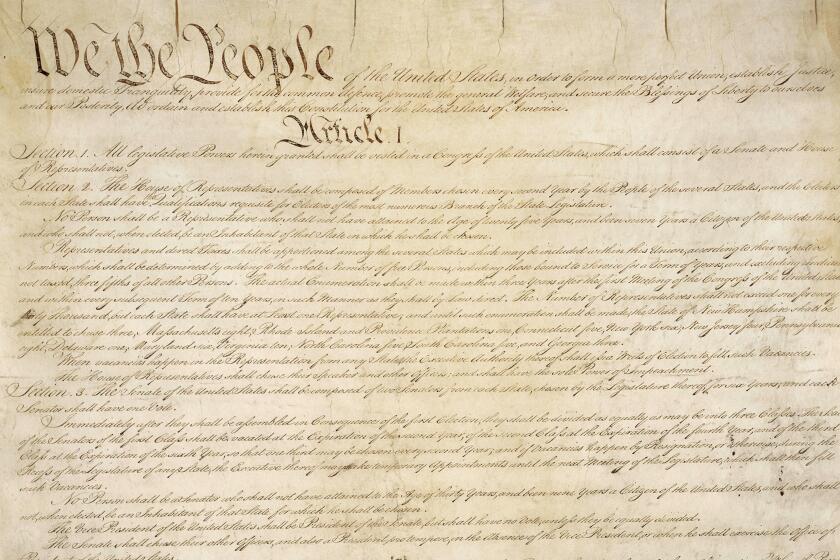Editorial: Drain the swamp? McCarthy’s House rules could weaken ethics oversight

- Share via
After Kevin McCarthy was elected speaker of the House by his fellow Republicans last week — on the 15th ballot and after making concessions to hard-right members of his party — he offered a rosy preview of Republican control. The speaker said that under his leadership the House would end “wasteful Washington spending,” improve the lot of Americans and provide a check on the Biden administration.
But in its first moves the GOP-led House has taken some steps to make the legislative process more transparent, such as requiring a 72-hour period in which members can review the content of legislation before it can be voted on.
However, the House has also moved to make it harder to investigate corruption by its members. Moreover, rather than simply conducting robust oversight of the Biden administration, House Republicans seem intent on launching blatantly partisan investigations that could undermine the intelligence community and the criminal justice system.
On Monday, the House approved a package of rules changes that, along with other assurances, allowed McCarthy to win the backing of hard-liners in his party. The rules will dictate House procedures for the next two years while Republicans hold the majority.
Whether the next speaker is the oft-humiliated McCarthy or someone else, Republican control of the House has gotten off to a disastrous start, and things are likely to get worse.
But the package also includes some bad moves, including changes in the operation of the Office of Congressional Ethics, an independent body that can make recommendations to the House Ethics Committee about members suspected of unethical conduct.
The changes might seem technical, but could have the effect of hamstringing the ethics office. They impose term limits on members of the office’s board and require that staff be hired within 30 days of the rule’s adoption. The term-limit rule will force three of the four Democratic appointees on the board to leave immediately, creating vacancies that will take time to fill — and could well stay unfilled for long periods. The hiring time limit sets an unnecessary deadline for which there is no good reason. Also, as good-government groups have pointed out, it could make it more difficult for the office to thoroughly assess applicants for staff positions and prevent filling vacancies that occur later during this Congress.
Taken together, these provisions threaten to halt the work of the ethics office. That is hardly consistent with McCarthy’s stated commitment to a “government that is held accountable.”
House Republicans still in thrall to ex-President Trump can’t seem to decide whether the Constitution should be venerated or scrapped.
Accountability is also the supposed justification for a proposed special subcommittee of the Judiciary Committee approved Tuesday that will investigate the “weaponization of the federal government.” In his victory speech McCarthy said: “We will hold the swamp accountable, from the withdrawal of Afghanistan, to the origins of COVID and to the weaponization of the FBI.”
Of course, Congress has the right to provide oversight of the Justice Department and the intelligence community. But this panel, which is expected to be headed by Judiciary Committee Chairman Jim Jordan (R-Ohio), a Donald Trump ally, seems aimed not at responsible oversight but at creating a House venue for spewing the tired MAGA talking point that Americans — especially Trump — are being victimized by a runaway “deep state” for political ends. What else can “weaponization” mean?
Ominously, the resolution proposing creation of the panel includes “ongoing criminal investigations” in its description of its authority. Would that mission encompass attempts by the panel — which the Justice Department should resist — to meddle in the current special counsel investigation of Trump’s possession of government documents after he left office? (The Justice Department also is reviewing the seemingly less significant retention of a smaller number of documents found in Biden’s office after he left the vice presidency.)
McCarthy, who thanked Trump profusely for his help in securing the speakership, needs to ensure that the House doesn’t become merely another stage for the former president or wholly controlled by the group led by Rep. Matt Gaetz (R-Fla.) that successfully held McCarthy hostage to their demands. But that would mean antagonizing some of these forces on which his continued tenure depends. The prospects of him doing so seem very slim.
More to Read
A cure for the common opinion
Get thought-provoking perspectives with our weekly newsletter.
You may occasionally receive promotional content from the Los Angeles Times.












